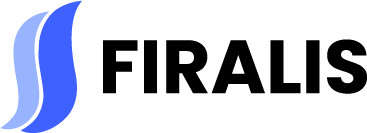• Leading Horizon Europe initiative gathers experts to strengthen innovation, clinical trials, and citizen engagement in early cancer detection.
• 3rd Laboratory Test with the participation of internal and external end user stakeholders
• ONCOLOGICAL Living Lab Day was hosted
Kaunas, Lithuania, 12 May 2025 - The future of colorectal cancer prevention took a major step forward this week as over 70 researchers, clinicians, industry partners and policy experts from across Europe gathered in Kaunas, Lithuania and online for the 2nd Plenary Meeting of ONCOSCREEN, an EU-funded Horizon Europe project aiming to transform Colorectal Cancer (CRC) detection through precise, affordable, and citizen-centred screening.
Hosted by Lithuanian University of Health Sciences (LSMU), plenary sessions were organised at the Emmanuel Levinas Centre. The four-day meeting from May 19–22, marked a critical milestone in the project’s journey to co-create the final version of project tools for an intelligent, risk-based “shield” against colorectal cancer.
The event opened with a deep dive into Lithuania’s health research landscape, featuring a tour of LSMU’s campus and high-impact presentations by leading scientists including Prof. Vaiva Lesauskaitė, Vice-Rector for Research; Prof. Juozas Kupčinskas, Head of Digestive Research; Prof. Dainius Vajauskas, of the Nuclear Research Centre; and Dr. Julius Mačiulaitis, who spotlighted LSMU’s success in regenerative medicine innovation.
Interactive workshops allowed partners to align on clinical trial implementation, system architecture, intellectual property rights, and citizen awareness campaigns.
On the third day, participants engaged in a full-day Laboratory Test, providing feedback on all ONCOSCREEN tools from the perspectives of patients, clinicians, and policymakers. A mixed participation with project partners and external stakeholder occurred for the three above groups enhancing the co-design approach with external feedback. The tools aim to personalise screening approaches while ensuring ethical and data-responsible implementation.
In addition, an Oncological Living Lab Day was organised with co-learning and co-creation panels for a series of challenges involving active citizen engagement, innovative public-private financial schemes, policy reforms and clinical guidelines enhancement. Participants agreed to further continuate the public dialogue on the topics of interest in order to lead to tangible recommendation statements
Reflecting on the meeting, Project Coordinator Anaxagoras Fotopoulos from EXUS AI Labs stated:
“This plenary was not just about reporting progress, but about engaging users—patients, clinicians, policymakers and technology providers meaningfully for serving an honourable cause. Of saving lives. We really solved challenges through our meeting and designed our next actions ahead, advancing our progress. Now it’s the time for speed up solution finding and mature our outputs with a view towards exploitation of results.”
ONCOSCREEN is a visionary €14 million Horizon Europe project bringing together nearly 40 partners across the EU. The consortium is committed to establishing next-generation screening systems that integrate AI, genomic biomarkers, citizen feedback, and policy insights to deliver early, personalised, and effective CRC detection.
To learn more about ONCOSCREEN and stay updated on project developments, follow us on:
- X (Twitter): @Oncoscreen
- Bluesky: @oncoscreen-project.bsky.social
- LinkedIn: ONCOSCREEN Project
Technical enquiries:
Anaxagoras Fotopoulos, Project Coordinator, EXUS AI Labs
a.fotopulos@exus.ai
Media enquiries:
Ivanna Katz, EU Project Manager, Carr Communications
ikatz@carrcommunications.ie
Funded by the European Union. Views and opinions expressed are those of the authors and do not necessarily reflect those of the European Union or the granting authority. Neither the European Union nor the granting authority can be held responsible for them.

The ONCOSCREEN Project is funded by the European Union’s Horizon Europe research and innovation programme under grant agreement No. 101097036
